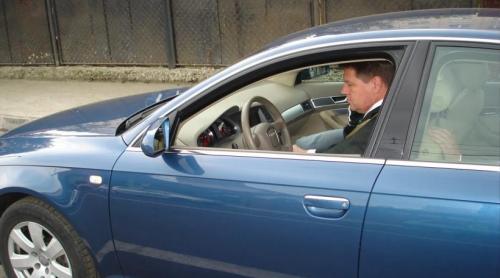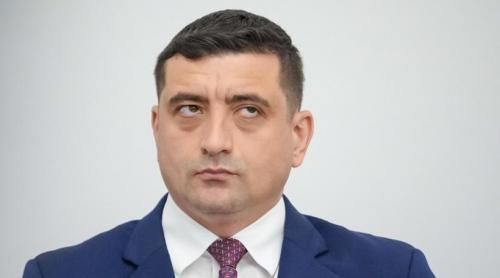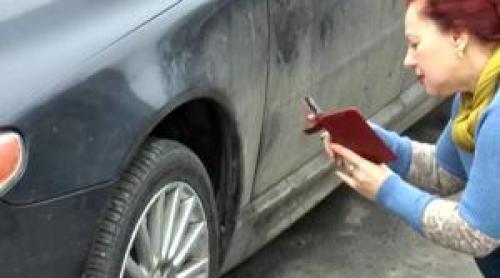
Hundreds, maybe thousands of Romanians tried to flee communist Romania over the border, some choosing to swim across the Danube, never to be heard from again by their relatives and friends.
Kosta Jakovljevic, a retired forensic doctor from the Negotin region, in Serbia, took down notes on the unidentified bodies the Danube washed away to Serbian shores, over the decades he was practicing his profession.
The documents Jakovljevic holds in his personal archive, starting with the 1970s, are also to be found in Serbian archives, and they tell the story of so many lives lost, many due to the criminal actions of the Romanian border guards.
For instance, a 16 March 1989 entry in Jakovljevic's records says:
Golubinje. Unidentified body, most likely Romanian. Male, 35 to 40 years old, dressed in a read and blue jacket, zipped up. In the pockets there are a swim cap and a phone booklet. A small purse was taped around his body, holding Romanian currency and a note, on which it was written "KNIJA VISESLOVA 72 tel. 992128 TRIM HOTEL H BENGOSEN". Under the jacket he wore a blue waterproof suit, zipped up. On top he wore black trousers, with a black belt. The manufacturing label said Centrala Industriei Confectiilor Bucuresti. He wore shoes number 43. On top of the shoes he put rubber gloves. He wore one pair of leather gloves and one pair of rubber gloves on top.
The body may have been in the Danube waters for one or two weeks.
While the a 2 April 1989 entry in Jakovljevic's records says: Zapis, a place a little bit up stream from Donji Milanovac town. Unidentified body found, possibly Romanian. Male, height 1.70 meter, age 35, athletic type. Parts of the scalp were missing, as were parts of the flesh, probably after having been eaten by fish. The body may have been in the Danube waters for about two months. It was handed over to the Donji Milanovac city hall, for burial.
So far, post-communist Romanian authorities started no investigation into the missing persons files, of people who actually were killed while trying to cross the border, by their fellow countrymen acting as border guards.
The archives of neighboring Serbia could help trace the victims and their killers, as would the living memory of the local people, living on both shores of the Danube.
The green uniform clad border guards started to sift through the people approaching the border some 15 to 20 kilometer before reaching it.
On trains and in railway stations they started asking questions: "Why did get out of the train at Orsova? Why are you traveling to Oravita? Where to are you going? Who do you know in the villages and cities around here? Why to you want to enter the border zone?"
All these were possible due to the travel restrictions in the the border area, decided with Government Decree 678, of 07/10/1969 laying out the guarding methods for the state frontier.
The law enforcement agents were the border guards corps, aided by the troops of the Ministry of Interior, and staff from the intelligence services, local councils, local militia and volunteer citizens.
The officers with the border guards corps were empowered to file prosecuting files against people violating the law, while the lower ranking officers could only file reports on the facts they discovered.
Another provision of the law was for all persons reaching the border area to report to the local police station within 24 hours from their arrival.
At night, the freedom of movement was strictly restricted. Two kilometers from the border line all moving around, be it on foot or in a vehicle, was to be done only on approved public roads.
Also, over night camping of people for half a kilometer from the border line had to get the explicit approval of the local commander of the border guards unit.
Planting the crops, grazing the animal stock, or using the water sources were also regulated, with all activities being forbidden 50 to 250 meters away from the border strip.
While fishermen were restricted to fish during day time, and required to have on them all the documentation proving their identity, line of work, registration of the boat and the fishing permit.
Even so, thousands of Romanians ran over the border strip to brave the cold waters of the Danube and seek freedom via former Yugoslavia.
For those that were stopped in their tracks by the bullets fired by Romanian border guards, and had their bodies washed ashore in Serbia, forensic doctors in the neighboring country were able to positively identify them as Romanians, by at least the manufacturing labels of their clothing.
However, Romanian authorities more often than not refused to take the bodies, claiming no incidents were reported at the border, hence the dead people were not Romanian.
This is how many of these bodies were burried in Serbian communal graves, and murder trials never filed in Romania, on their behalf.
For how long
Citește pe Antena3.ro

















